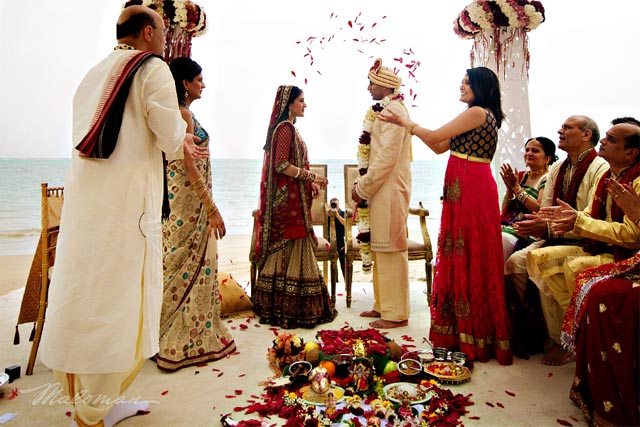PRINCIPLE FOR ARRANGING MARRIAGE
Arranged marriages work on the principle
that every man or woman should be the family’s responsibility, especially when
it comes to marriage. You might fall in love with this concept at first sight,
if you are from a European or American background. Parents would always stand
by for their children and their newly formed family. When the grand children are
born, their grandparents babysit them. This is a real cost cutter too, and you
might want to try.
In the pre-50s era, families were
established in the joint tradition, where members from one family lived in one
house, with their children, their partners, and their partners’ partners. The
downside of this “joint family” system is that the individual never got his
voice heard. The elder in the family is always the decision maker, the
dictator. If you fall in love with another person and if your family,
especially the eldest member did not approve of your relationship, you would be
ousted from the family. Caste, religion, social background and other rivalries
can cause the older men or women to decide against your will to marry your
sweet heart. Finally, you might have to shout like the Spartan king, in a
Hollywood movie about 300 warriors, your insanity.
During the late 90s this familial set up
transformed to give way entirely to the “nuclear family” system—husband, wife,
one or two kids. In such families, marriages mean breaking away from one family
and forming another atom or nuclei of a family. Parents who love their kids are
reluctant to let them make decisions for themselves, especially in the case of
choosing life partners. Somebody’s someone cheating someone else is a news item
our newspapers and Television channels love to celebrate on a daily basis. This
inevitably invites parents to step in the decision making process during a
wedding proposal. Most families suffer severe emotional trauma and depression
close to a marriage, anxious over the future of our family member getting
married, and I myself have been through this great emotional turmoil during a marriage
in my own family. This is the case of arranged marriages.
 |
| Image Courtesy: www.feminiya.com |
The so-called love marriages involve a direct
infusion of individual rights with the ritual of marriage. In love marriages,
parents’ consent would generally be lacking, due to caste, religious, or other
issues. Two individuals choose their partners out of their free will and tie
their relationship in the wedding knot. Wedding would still happen, but
probably within a registrar office or in a temple of church, in the presence of
their friends. The psychological trauma of the family on such an occasion
should not be undermined, with the prejudiced media, caste, religion, and
communal order on the other end with their mind-control games.
It is, however, merely a hypothetical
question whether the involvement of parents assure marital happiness. At least,
from the individual’s point of view, they could understand each other and learn
to appreciate mutual values better through a love relationship.
When even their dating is pre-arranged by
their respective families, it is a question to what extent one’s independent
creative self could harmonize itself with the mechanical processes involved.
What should be an organic process of meeting individuals turns into an
orchestrated ritual guarded safely by the family.
To be continued Read previous chapter here








Comments